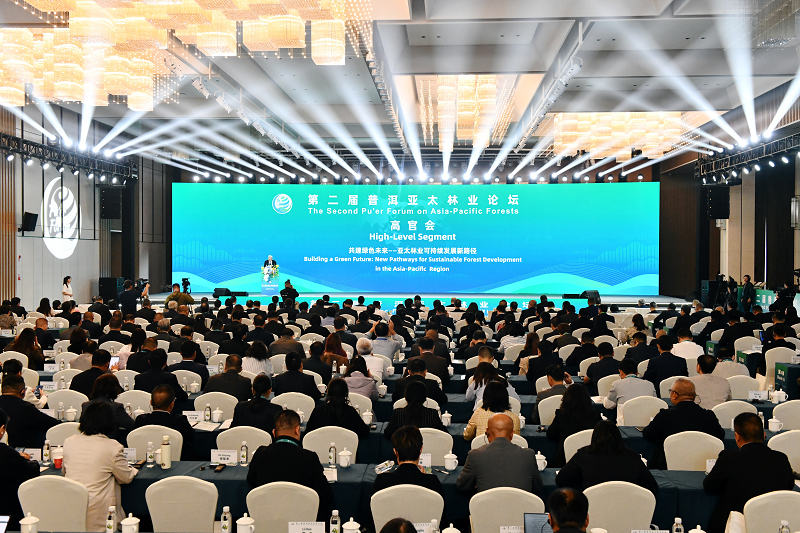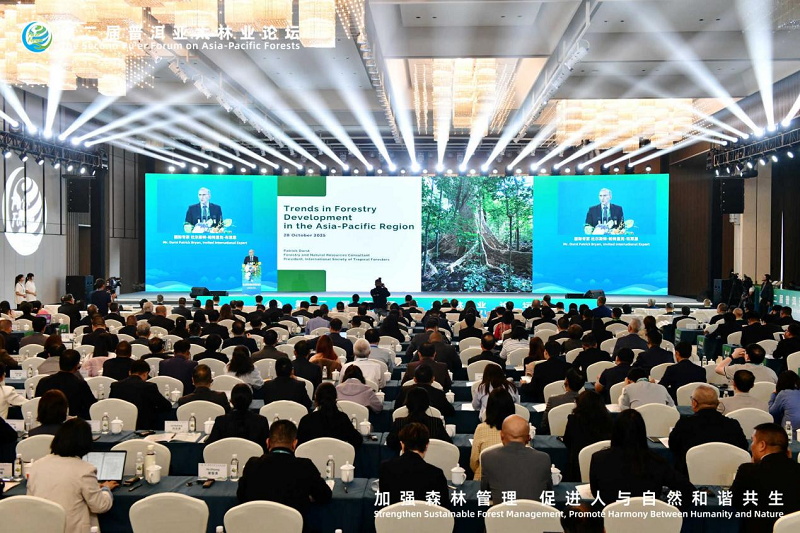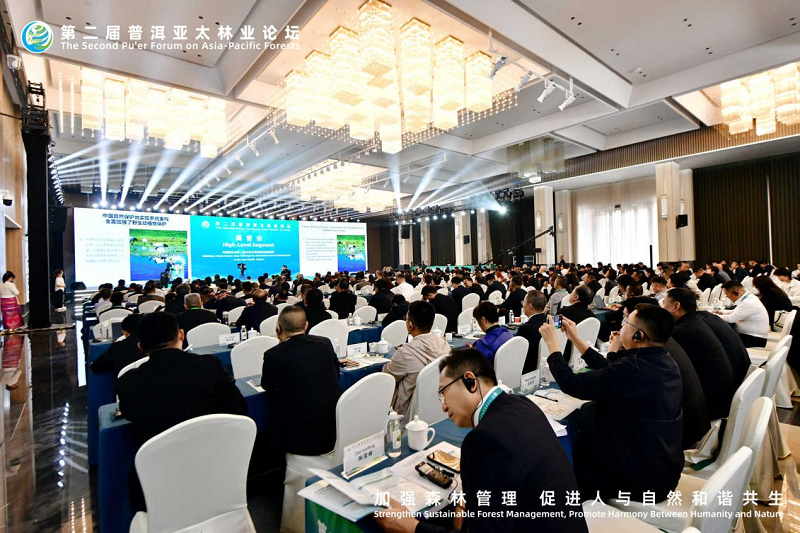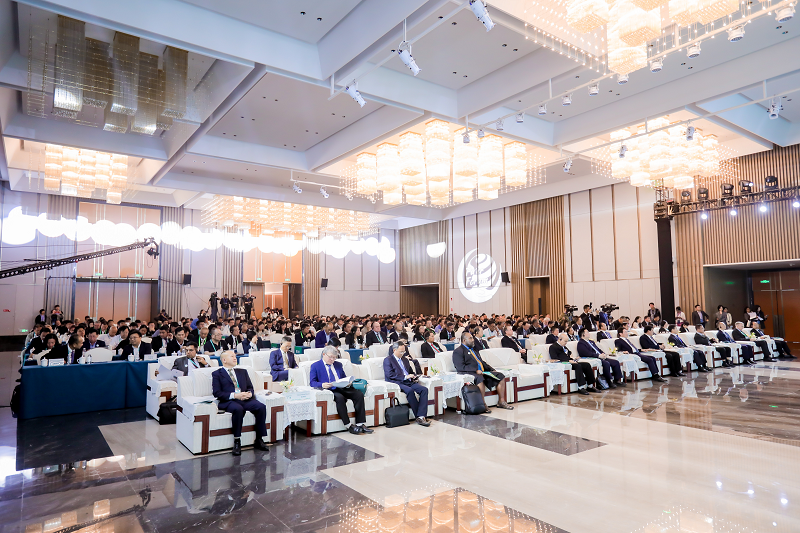Pu'er, Yunnan, 28 October 2025 – The High-Level Segment of the Second Pu'er Forum on Asia-Pacific Forests was convened today in Pu’er city, under the theme “Building a Green Future: New Pathways for Sustainable Forest Development in the Asia-Pacific Region.”
Key proposals included:
● Fully utilize the institutional platform of the Forum to deepen exchanges, cooperation and mutual learning, actively implement cooperation agreements signed during the Forum, and support dialogue and cooperation in forestry education, science, technology and industry;
● Leverage the advantages tea industry of Pu’er to launch an international training program for the tea industry;
● Continue to focus on implementing the Global Development Initiative, strengthen extensive consultation, joint contribution and shared benefits, practically advance the "Global Network for Sustainable Forest Management" and jointly promote harmony between humanity and nature.

The High-Level Segment was chaired by Mr.Zhao Shucong, President of the Chinese Society of Forestry. During this session, presentations were delivered by senior forestry officials from economies including Cambodia, Fiji, Indonesia, and Myanmar; representatives from National Forestry and Grassland Administration of China; the Deputy Secretary-General of the Shanghai Cooperation Organization; international experts invited by the Asia-Pacific Network for Sustainable Forest Management and Rehabilitation (APFNet); and officials from the People's Government of Yunnan Province.


Presentations highlighted that against the backdrop of global ecological conservation efforts, economies widely recognize forests as fundamental to sustaining human survival and ecosystem balance, with their sustainable management crucial for the future of the planet. By providing carbon sinks, conserving biodiversity, and supporting green industries, forests play an indispensable role in climate action, ecological protection, and sustainable development. Economies are actively advancing sustainable forestry by implementing tailored policies and measures, contributing to global climate response, biodiversity conservation, and the UN 2030 Agenda for Sustainable Development.

It was generally acknowledged that sustainable forest management requires government guidance, scientific and technological support, financial investment, and broad societal participation. By improving management practices and fostering green industries, a solid foundation can be laid for the green economic transformation across economies.